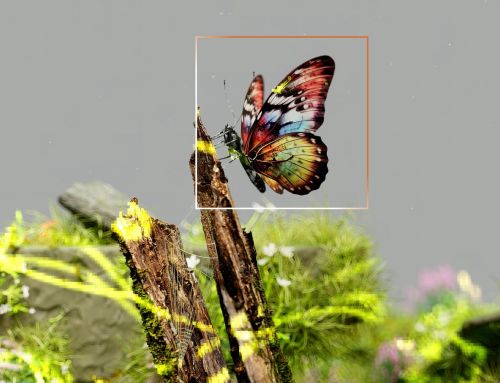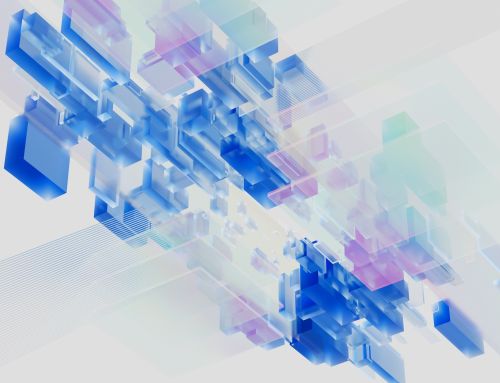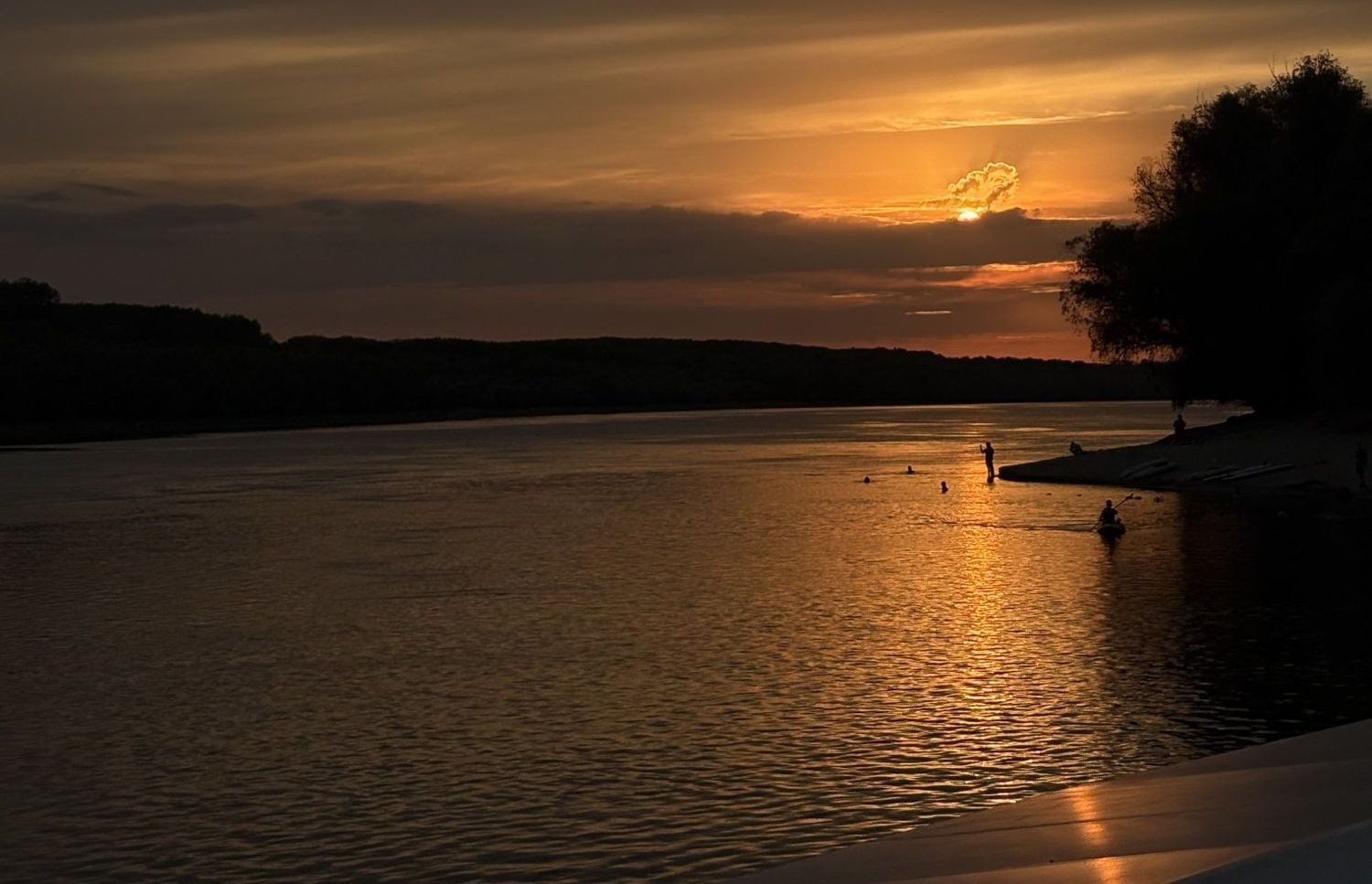
Charting Singularities: CCS’s Interdisciplinary Journey at Atlantykron 2025
At the 36th edition of Atlantykron, the unique summer academy for youth dedicated to science, futurology, and science fiction, the Center for Complexity Studies (CCS) delivered a rich and diverse program blending philosophical inquiry, technology, and exploratory research.
This year, CCS’s interdisciplinary team – Florin Munteanu, Emil Zaharia-Kézdi, Anca Berlo, Emil Canciu, Andrei Tiberiu Carp, Cotiso Hanganu, Eugen Danciu – came together on the wild island of Inelul de Piatră with the meta-theme Technological and Ontological Singularity, within the camp’s broader theme: “The Universe Beyond Tomorrow.”
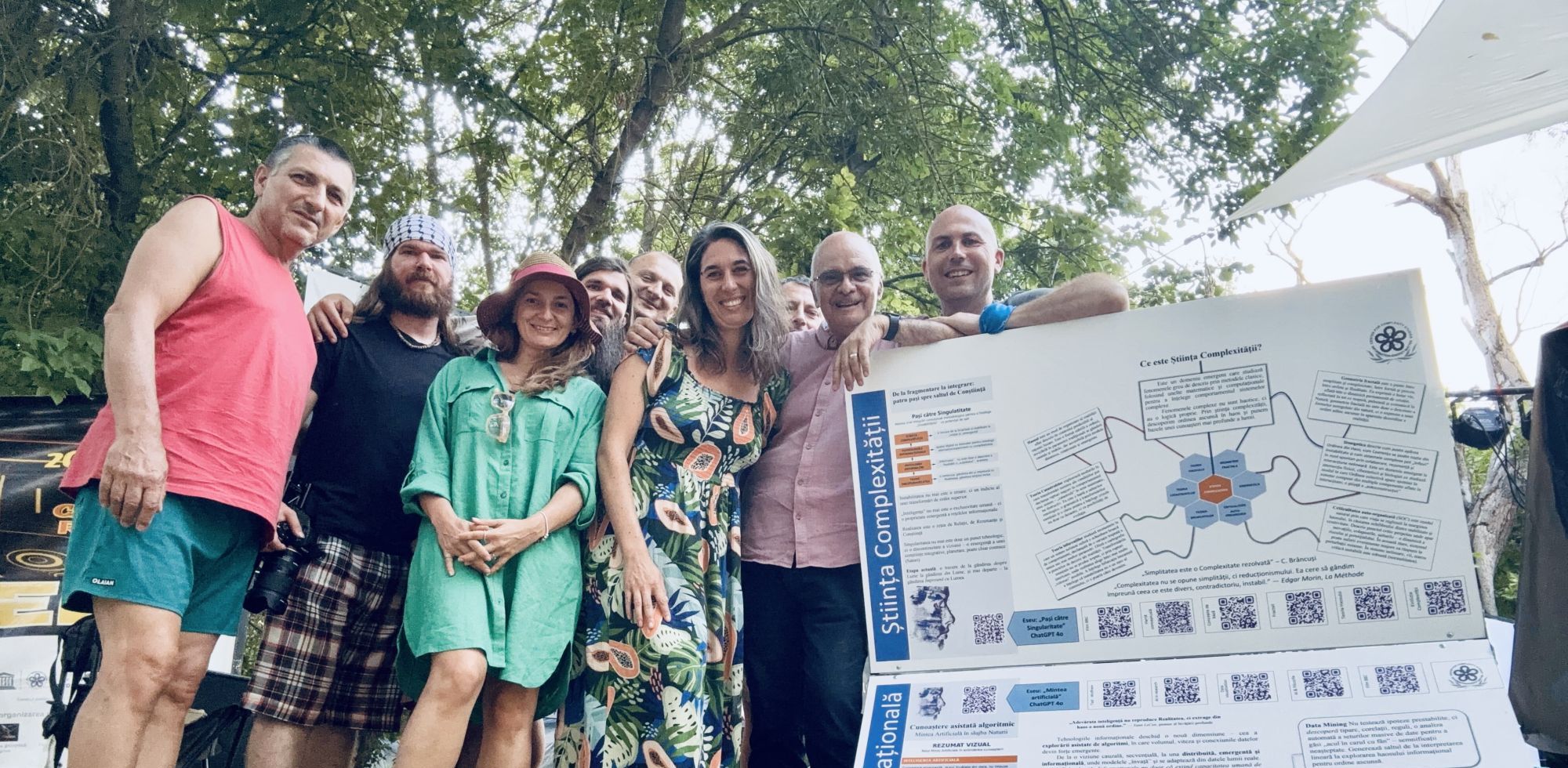
©️Anca Berlo
It was a week of reconnections and new beginnings: some of our members returned to the island after over a decade, while others joined for the first time. Living in tents, surrounded by nature, and engaging in shared intellectual work forged stronger bonds, sparked new collaborations, and generated ideas that will grow far beyond the island.
Eugen Danciu, specialized in Mechanical Engineering and Process Equipment, was responsible for logistics, the technical side of event organization, while Dani Zaharia-Kézdi visually documented the journey.
Conference – “The World Beyond Singularity”
Florin Munteanu opened the scientific program with a visionary talk exploring a world where Information is the very fabric of Reality, Matter is reversible, Identity becomes a fluid network, and Meaning is a living, generative principle.
He introduced the butterfly metaphor – the threshold where a system’s internal structure exhausts its self-organizing potential within an existing paradigm, and a new regime of coherence suddenly emerges, radically different from the former frame of reference.
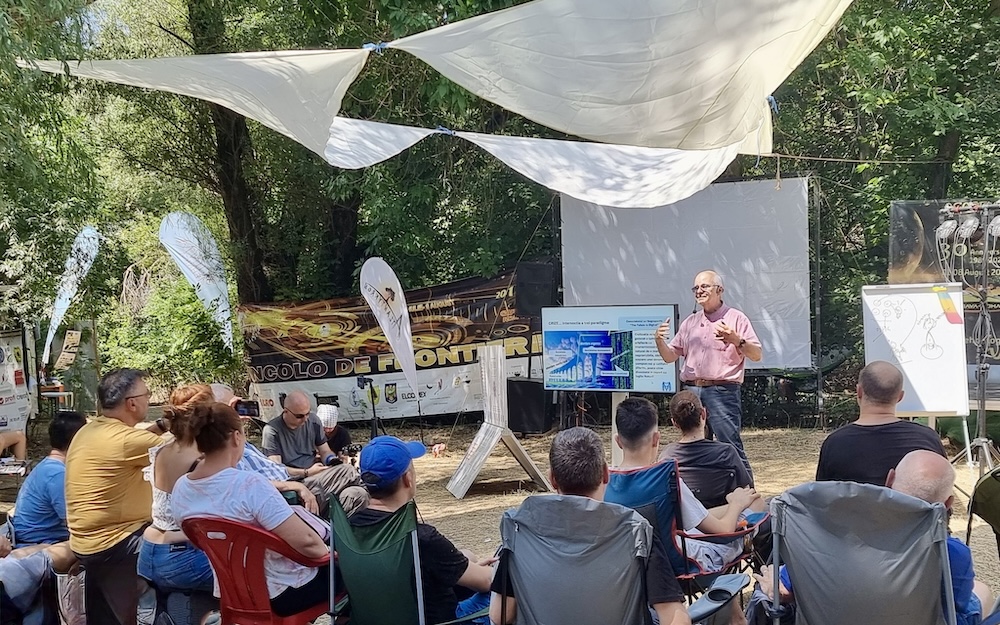
©️Daniela Mironov Bănuță
Conference – “Complexity and Spirituality”
Later the same day, Emil Zaharia-Kézdi invited participants to reflect on how complexity science can help regenerate meaning and reconnect humanity with its vocation as mikrocosmos – a being called to unify and transfigure reality through contemplation.
The discussion addressed the acceleration of change, the fragmentation of knowledge, and what some spiritual leaders call theological exhaustion, but also the encouraging efforts to reunite rational and sensitive dimensions of human experience.
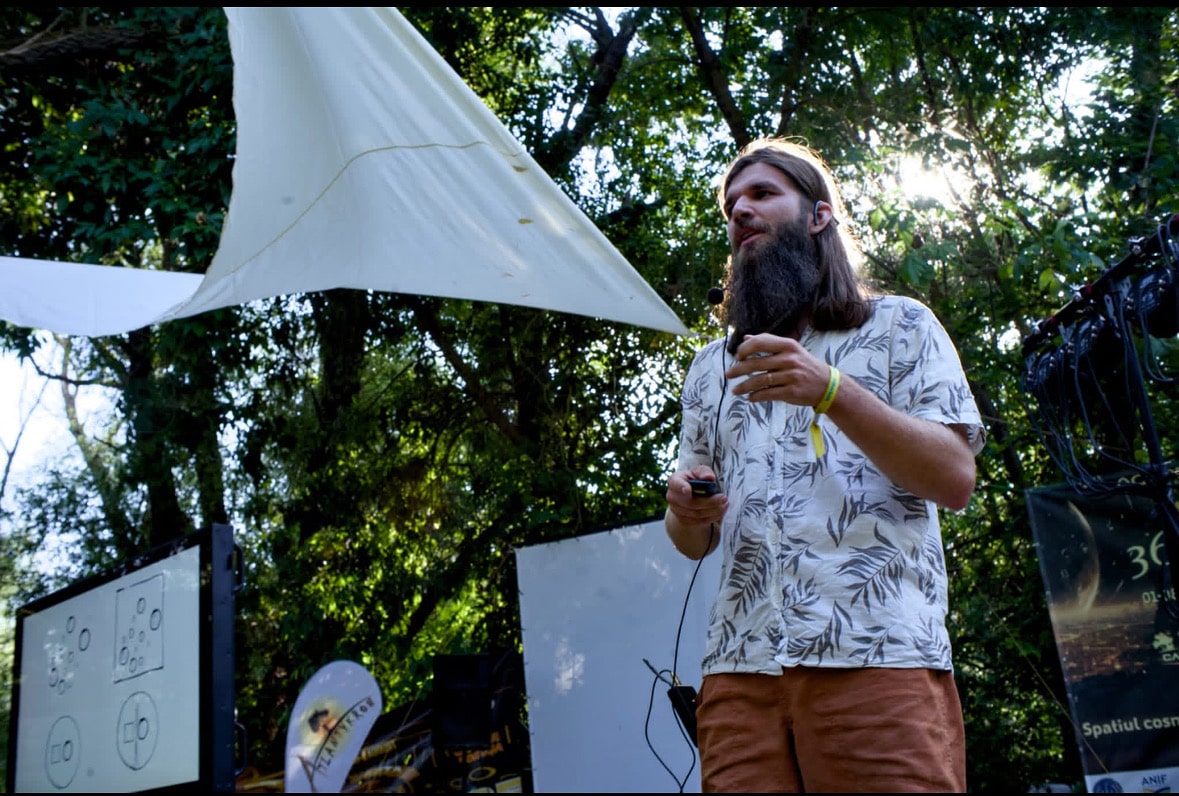
©️Dani Zaharia-Kézdi
Philo Café – Living Philosophy in the Agora
Day 1 – Time
Facilitated by Anca Berlo, this first session drew on fragments from Heraclitus, engaging participants in a community of inquiry – a structured dialogue aimed not at defining concepts, but at exploring them deeply. Initial hesitation gave way to an energetic exchange where every idea was valued. Feedback ranged from surprise at the interactive format, to appreciation for the acceptance of each person’s contribution, to recognition of the exercise – spoken and written – as a form of mental training.
Day 2 – Love
Using excerpts from Plato’s Symposium, participants followed Diotima’s path from love of a single beautiful body to love of the soul, of laws, institutions, science, beautiful ideas, and ultimately, to the contemplation of Beauty itself. Feedback reflected both personal insight and a shared sense of connection, with one participant noting: “It was as if time disappeared and we were in the circle of Socrates and Plato, reaching universal truths.”
Day 3 – Truth and Lies
Returning to the agora, we tackled Kant’s categorical imperative and the question: Is it ever right to lie? We explored perspectives from ethics, psychology, and Plato’s Allegory of the Cave. The conclusion: Truth is liberating – most of the time painful, but the light that breaks the chains of illusion.
All workshops started with a philosophical text as a stimulus, which was read either on the participant’s mobile devices or on the digital screen available in the CCS tent. The philo café sessions were open to everyone, regardless of age or professional background. For most participants it was their first contact with philosophy as a living, accessible practice.
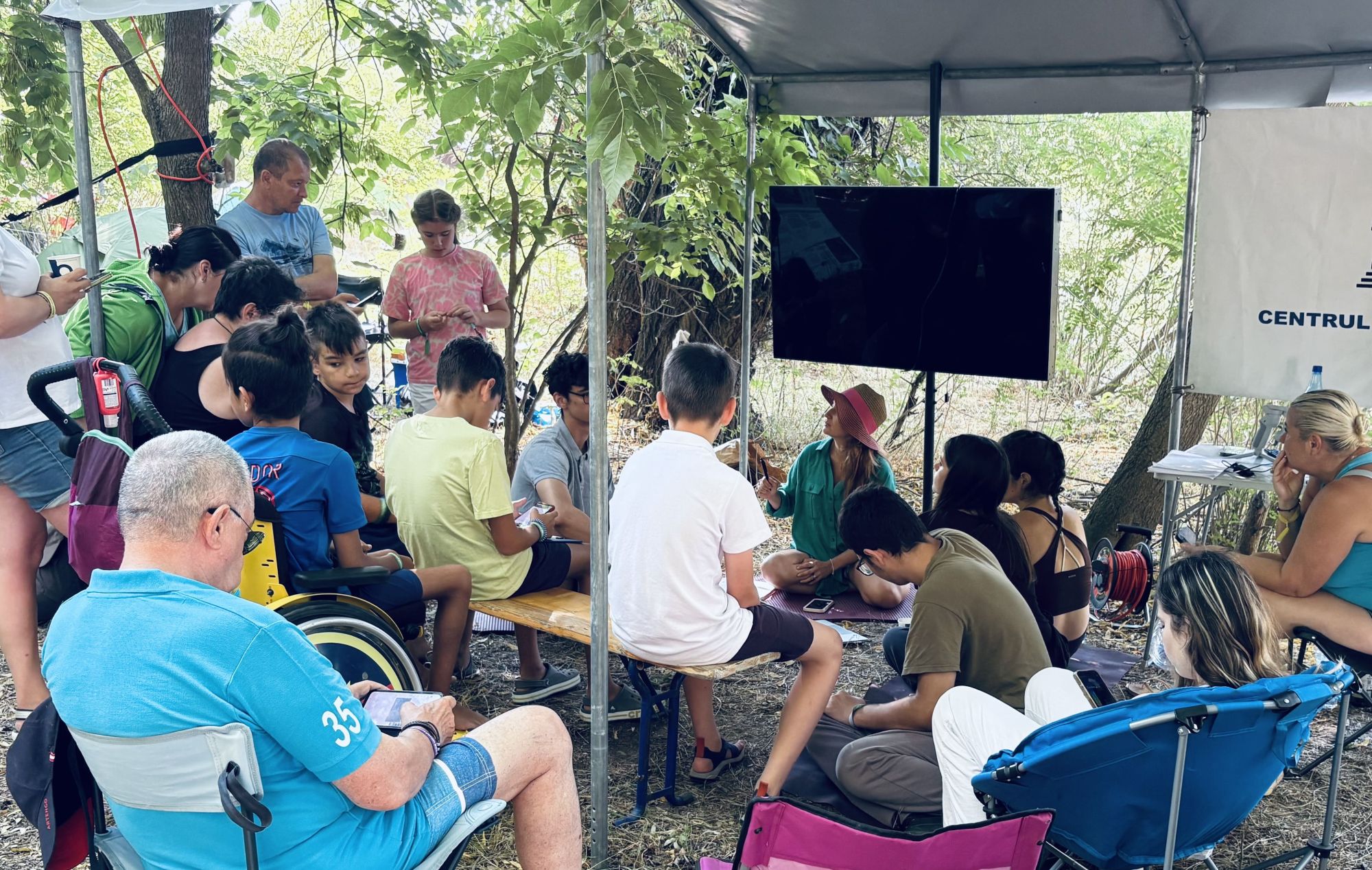
©️Dani Zaharia-Kézdi
Workshop & Exploratory Research – Navigating the Unknown with AI
Day 1 – Augmented Reading Skills
Emil Zaharia-Kézdi introduced Large Language Models (LLMs), prompt engineering, prompt intuition, and Retrieval-Augmented Generation (RAG) – a method combining database search with real-time AI-generated responses. The session focused not only on the core concepts, but also on user-level, interface-oriented explanations of RAG, showing participants how to interact with these systems effectively. A strong emphasis was placed on the importance of a rich vocabulary – why knowledge of literature can be a technical advantage, and how an extended lexicon together with cultural awareness directly influence the quality of AI responses. Participants learned how to adjust AI behavior through temperature settings, system messages, prompt engineering, and intuitive prompting, and why the ability to “learn how to learn” is essential in navigating AI-assisted knowledge retrieval.
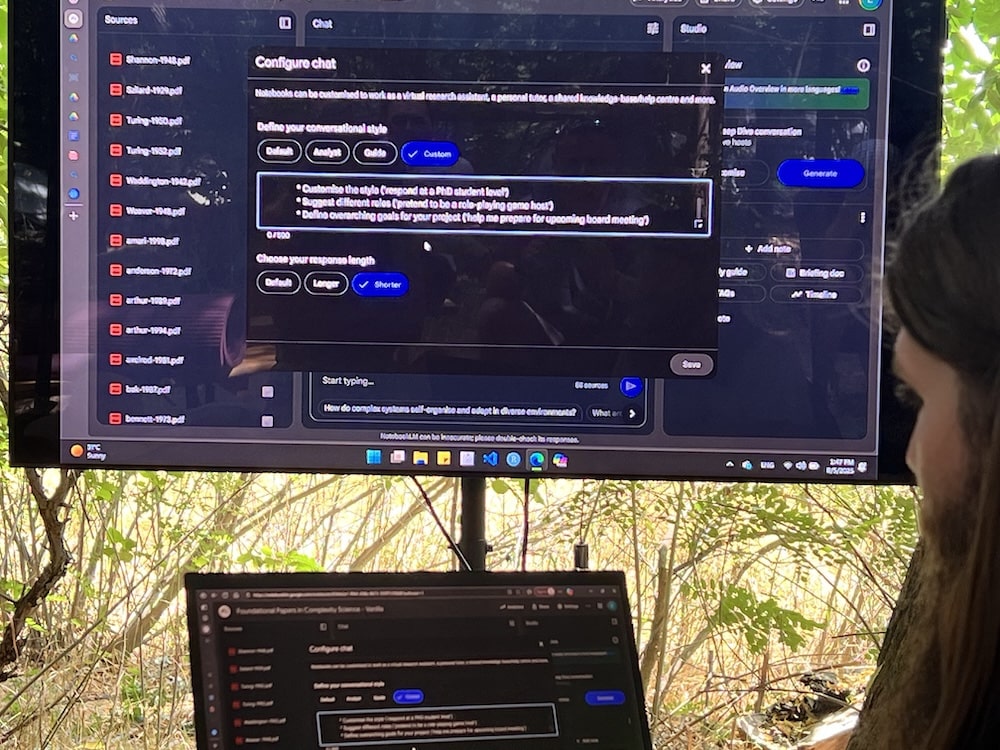
©️Dani Zaharia-Kézdi
Day 2 – The Art of Dialogue with AI in Education
Andrei Tiberiu Carp expanded on the functioning of LLMs and RAG, focusing on the technical architecture and mechanics behind these systems.
Anca Berlo contributed a framework from practical philosophy on the typology and functions of questioning – identification, clarification, conceptualization, problematization, and deepening questions – all essential for facilitating effective retrieval of information from a database.
Together with Emil Canciu, they demonstrated Google’s Notebook LLM, showing how AI can support non-linear reading and co-creation of knowledge, and why the quality of questions determines the richness of the answers. If reading on clay tablets or papyrus was linear, and in the era of hypertext a blue-marked word indicated the direction of exploration, in RAG there are no predefined “traffic signs” – the text and context are generated in real time as we ask questions. Now, we are not just reading; we are co-creating the path itself.
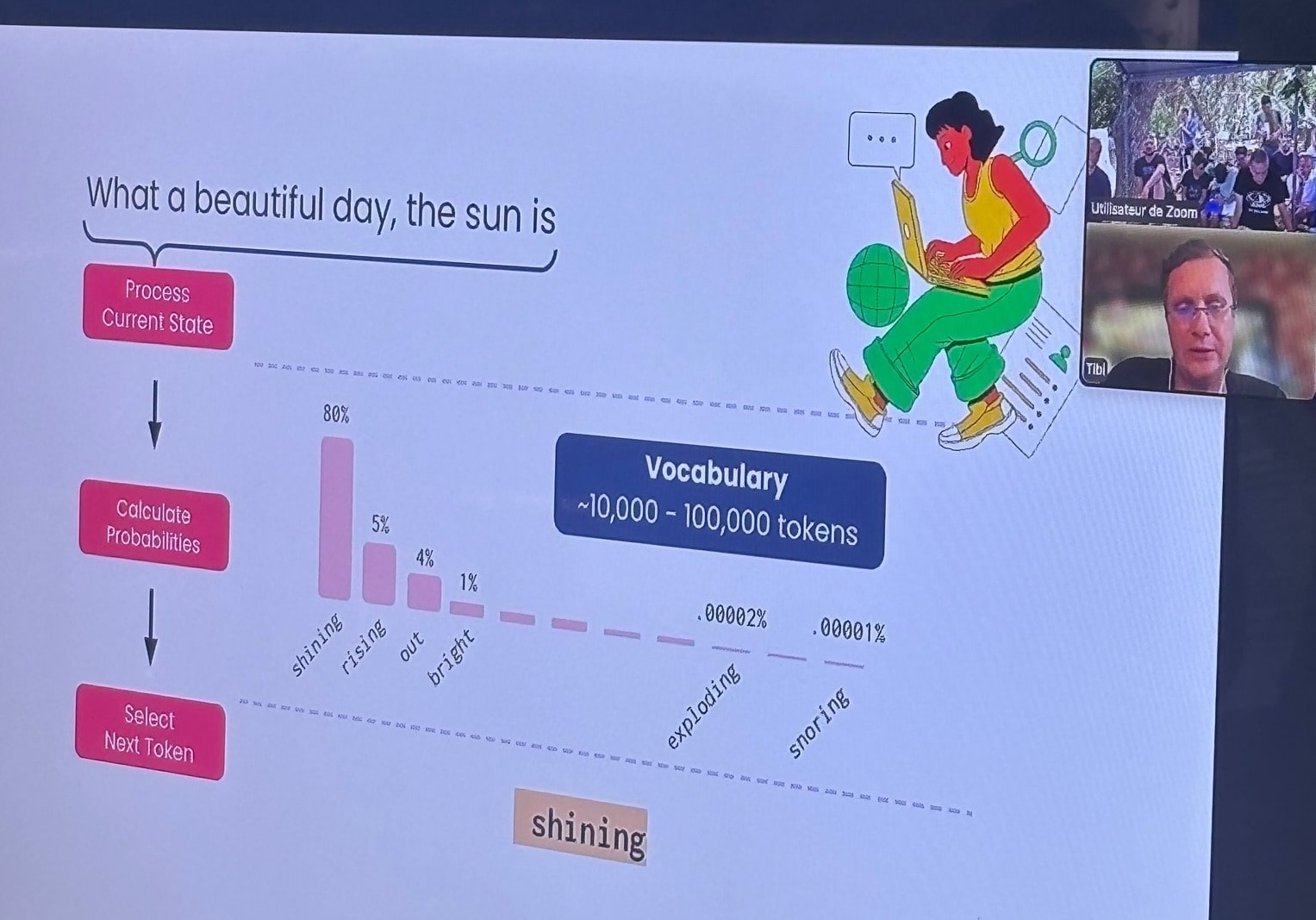
©️Anca Berlo
Day 3 – Synthesis and Building Coherent Knowledge
Cotiso Hanganu introduced mind mapping as a way to structure ideas, connect concepts, and identify knowledge gaps.
Emil Canciu presented part of his exploratory doctoral research in the field of sonology, applying unsupervised clustering techniques – notably Principal Component Analysis (PCA) – to explore domains with scarce or no prior data. These 1960s-era methods, he explained, laid the foundations for modern AI.
In a live experiment, participants recorded sounds from Tibetan bowls and a gong, played by volunteers. Using PCA clustering, the analysis revealed that the Tibetan bowl recordings grouped closely with therapeutic music and pink noise – bridging sensory experience with data-driven analysis.
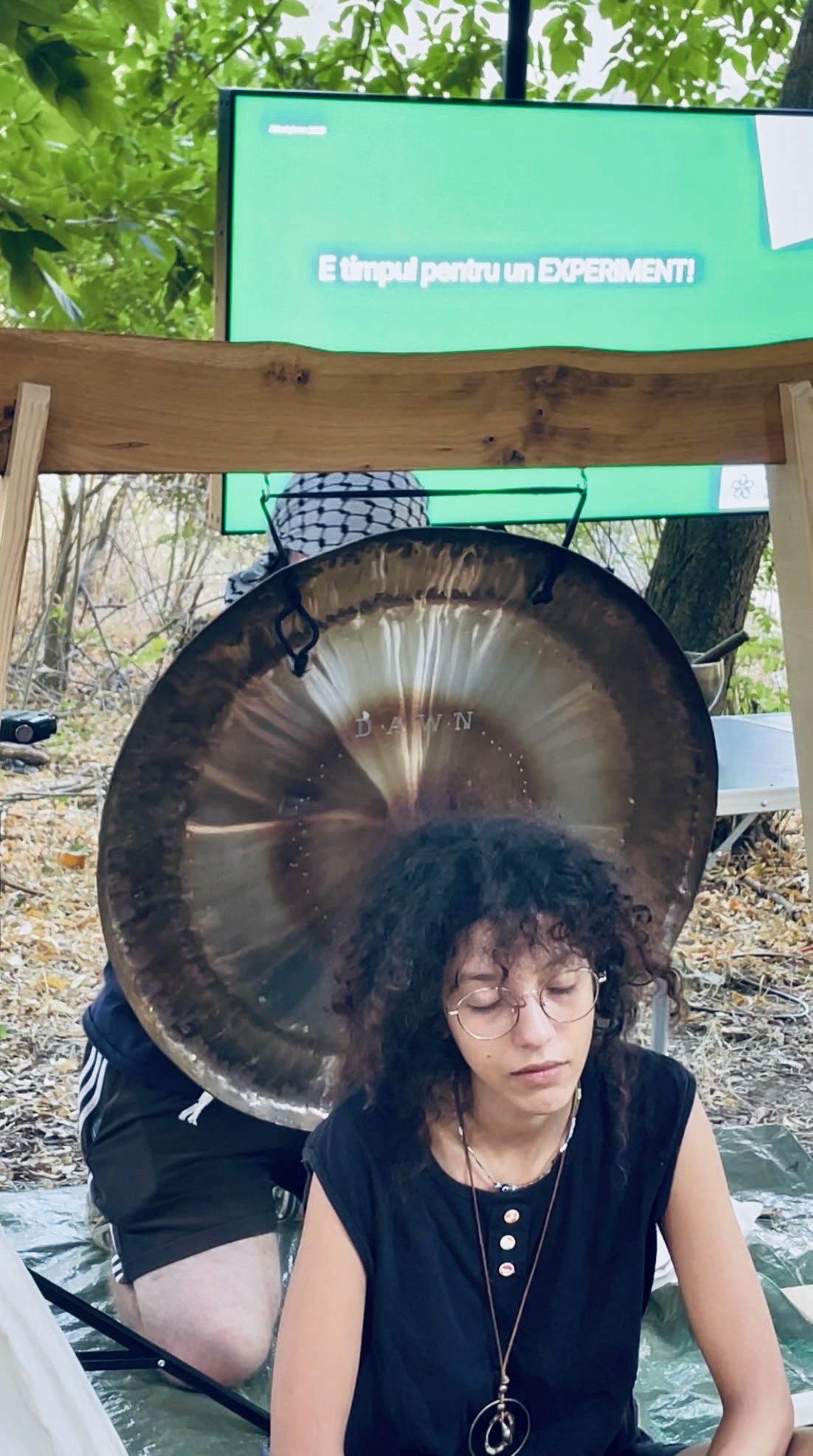
©️Anca Berlo
Looking Ahead
The CSC’s 2025 program at Atlantykron embodied the spirit of interdisciplinary exploration: from philosophy to artificial intelligence, from ancient wisdom to modern complexity science. Our week on the island reaffirmed the value of collaborative thinking in navigating the transformative thresholds – the singularities – that lie ahead for humanity.
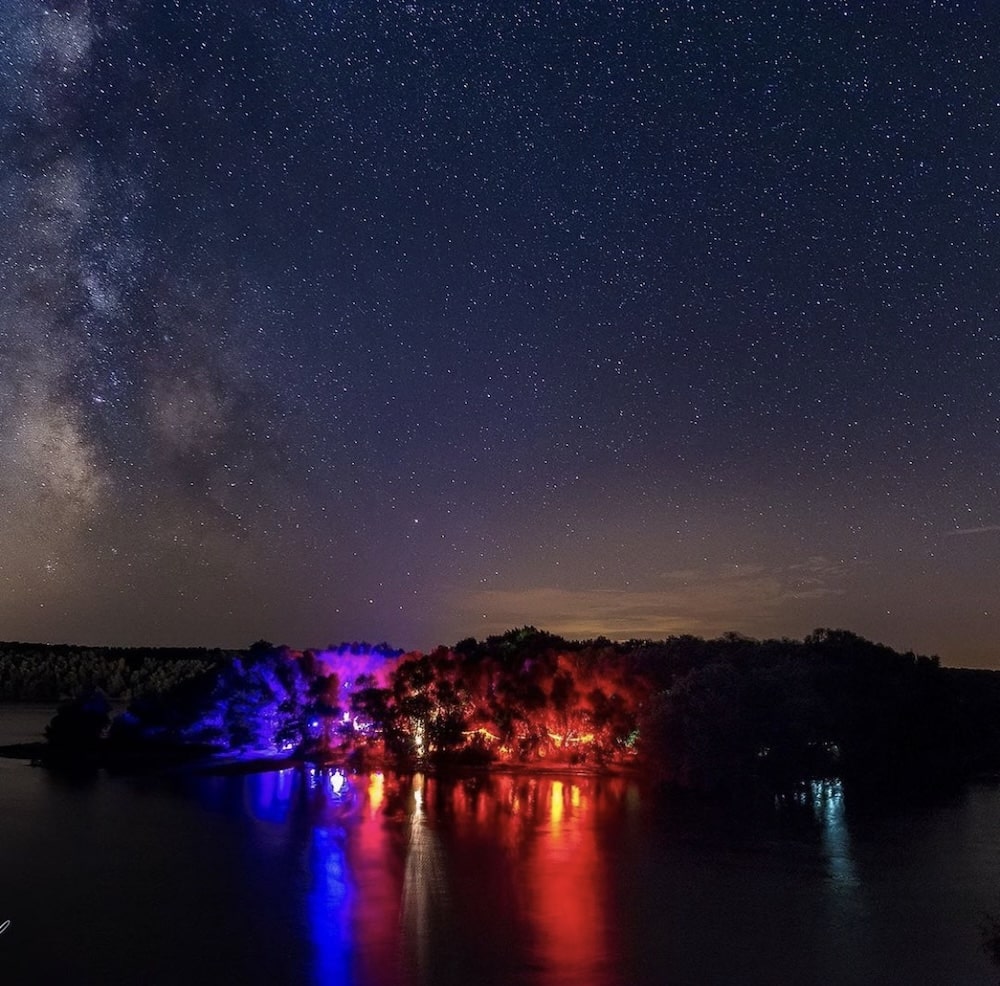
©️Atlantykron

